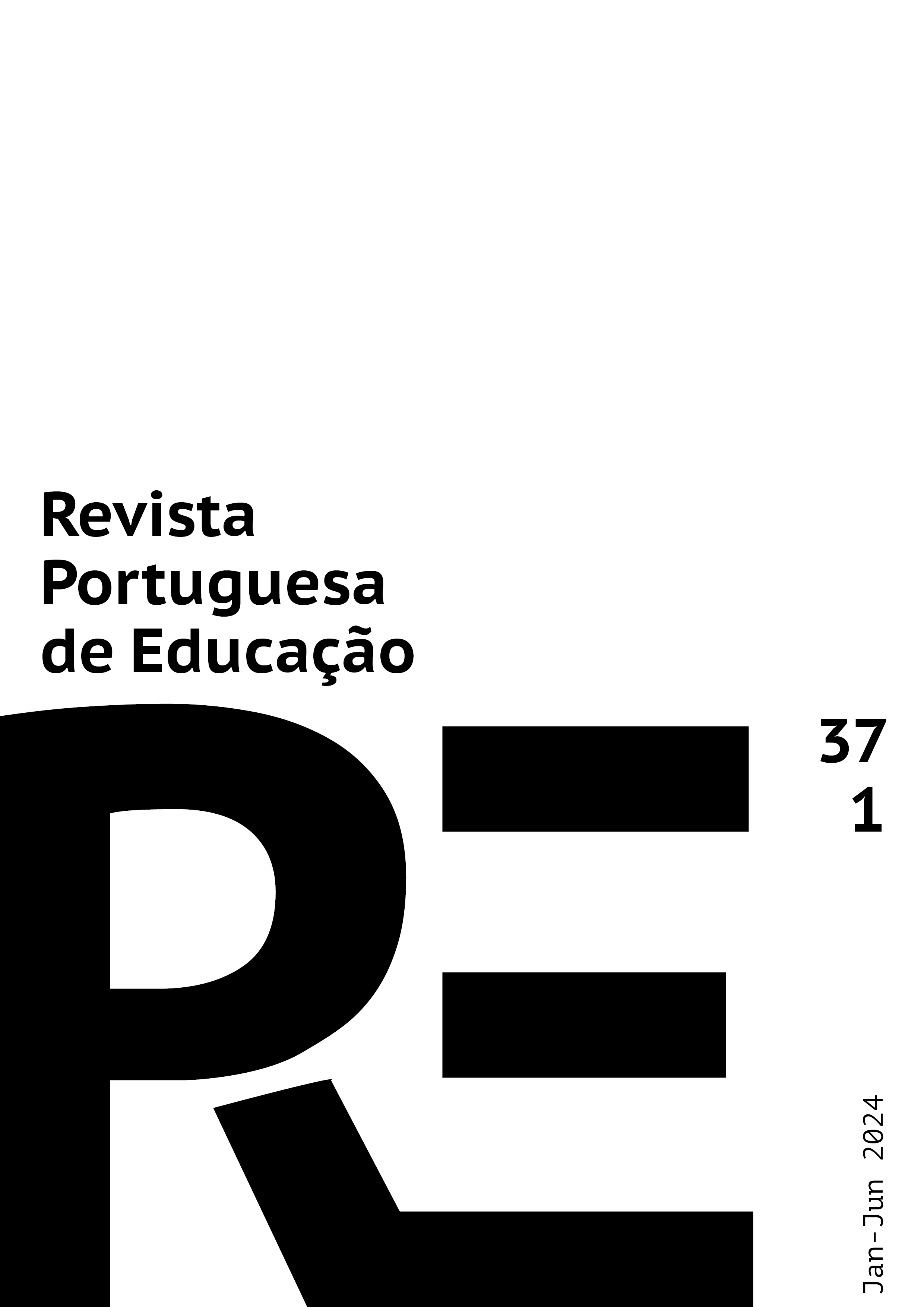Listening and formation: The pedagogical silence in Montessori
DOI:
https://doi.org/10.21814/rpe.31625Keywords:
Silence, Listening, Autonomy, Discipline, FormationAbstract
Silence is a multifaceted phenomenon with different implications in the educational process. The concept of silence, which has been set aside from educational discourse, reappears due to its connection to the themes of attention and listening. It also resurfaces due to its influence on the classroom environment and the quality of the teaching and learning process. Assuming that the reconstruction of pedagogy is strengthened when it starts from the germs of new construction contained in its own socio-historical and cultural construction, this study takes up Maria Montessori's pedagogical proposal to identify the conception and types of silence advocated in the method of this pedagogue and interpret them as an expression of principles that marked the debate on school education in the 20th century. This study, of a hermeneutic nature, highlights a positive conception of silence, the appreciation of inner silence and its facet of recollection, as well as the perspectives of its exercise in a formal context of early childhood education and personal and social development enhanced by the unity between body and mind.
Downloads
References
Alerby, E. (2019). Places for silence and stillness in schools of today: A matter for educational policy. Policy Futures in Education, 17(4), 530-540. https://doi.org/10.1177/1478210318780034
Alerby, E. (2020). Silence within and beyond Pedagogical Settings. Palgrave Mcmillan.
Araújo, A. F. (2019). Do silêncio como via longa. Contribuição para uma pedagogia do silêncio. Revista Lusófona de Educação, 46(46), 25-40. https://doi.org/10.24140/issn.1645-7250.rle46.02
Caranfa, A. (2004). Silence as the Foundation of Learning. Educational Theory, 54(2), 211-230. https://doi.org/10.1111/j.1741-5446.2004.00015
Caranfa, A. (2006). Voices of Silence in Pedagogy: Art, Writing and Self-Encounter. Journal of Philosophy of Education, 40(1), 85-103. https://doi.org/10.1111/j.1467-9752.2006.00499
D’Ors, P. (2022). Biografia do Silêncio: Breve ensaio sobre meditação (A. Guerra & C. Rodriguez, Trad.). Quetzal Editores.
Fiumara, G. C. (1985). Filosofia dell’Ascolto. Editoriale Jaca Book.
Freire, P. (1987). Pedagogia do Oprimido (17.ª Ed.). Paz e Terra.
Gardner, H. (2011). Frames of Mind: The Theory of Multiple Intelligences. Basic Books.
Goleman, D. (2014). Inteligência Emocional (M. Correia, Trad.). Círculo de Leitores.
Kurzon, D. (1992). When Silence May Mean Power. Journal of Pragmatics, 18(1), 92-95. https://doi.org/10.1016/0378-2166(92)90115-R
Kurzon, D. (2007). Towards a typology of silence. Journal of Pragmatics, 39(10), 1673-1688. https://doi.org/10.1016/j.pragma.2007.07.003
Lees, H. E. (2012). Silence in Schools. Trentham Books.
Lees, H. E. (2016). Choosing silence for equality in and through schooling. FORUM for comprehensive education, 58(3), 399-406. https://doi.org/10.15730/forum.2016.58.3.399
Lillard, P. P. (1988). Montessori: A modern approach. Schocken Books.
Montessori, M. (s.d. [19--]). A Criança (B. Rumina, Trad.). Portugália Editora.
Montessori, M. (1965). Pedagogia Científica: A Descoberta da Criança (A. Brunetti, Trad.). Livraria Editora Flamboyant.
Montessori, M. (1996). L’éducation et la paix (M. Valois, Trad.). Desclée de Brouwer.
Montessori, M. (2016). Le manuel pratique de la méthode Montessori (C. Poussin, Trad.). Desclée de Brouwer.
Picard, M. (2019). Le monde du silence (J-J. Anstett, Trad.). Editions La Baconnière.
Plutarque (1995). Comment Écouter (P. Maréchaux, Trad.). Éditions Payot & Rivages.
Rassam, J. (2017). Le silence comme introduction à la métaphysique. Artège Lethielleux.
Rodrigues, I. C. (2016). A Palavra Submersa. Silêncio e Produção de Sentido em Vergílio Ferreira. Imprensa Nacional-Casa da Moeda.
Rogers, C. (1987). Liberté pour apprendre (D. Le Bon & G. Ferry, Trad.). Dunod.
Röhrs, H. (2010). Maria Montessori (D. Almeida & M. Alves, Trad.). Editora Massangana.
Schultz, K. (2009). Rethinking Classroom Participation: Listening to Silent Voices. Teachers College Press.
Sola, G. (2003). Umbildung: La “trasformazione” nella formazione dell’uomo. Bompiani.
Torralba, F. (2010). A Arte de Saber Escutar (A. Venda, Trad.). Guerra e Paz Editores.
Verstraete, P. (2016) Lessons in Silence: Power, Diversity, and the Educationalisation of Silence. DiGeSt: Journal of Diversity and Gender Studies, 3(2), 59-74. https://doi.org/10.11116/jdivegendstud.3.2.0059
Verstraete, P. (2017). Silence or the sound of limpid water: disability, power, and the educationalisation of silence. Paedagogica Historica, 53(5), 498-513. https://doi.org/10.1080/00309230.2017.1296475
Downloads
Published
How to Cite
Issue
Section
License
Copyright (c) 2024 Alberto Filipe Ribeiro de Abreu Araújo, Joaquim Machado de Araújo , Iduina Mont’Alverne Chaves

This work is licensed under a Creative Commons Attribution-ShareAlike 4.0 International License.
1. The authors preserve their authorship and grant the Portuguese Journal of Education the right to the first publication. The work is licensed under Creative Commons Attribution License that allows sharing the work with the acknowledgment of initial authorship and publication in this Journal.
2. The authors have the right to take additional contracts separately, for non-exclusive distribution of the published version of their work (e.g. to deposit in an institutional repository or as a book chapter), acknowledging the initial authorship and publication in this Journal.
3. The authors have the permission and are stimulated to post their work online (e.g. in an institutional repository or on their personal website). They can do this at any phase of the editorial process, as it may generate productive changes, as well as increase impact and article citation (see The Open Citation Project).
The work is licensed under Attribution-ShareAlike 4.0 International (CC BY-SA 4.0)




















